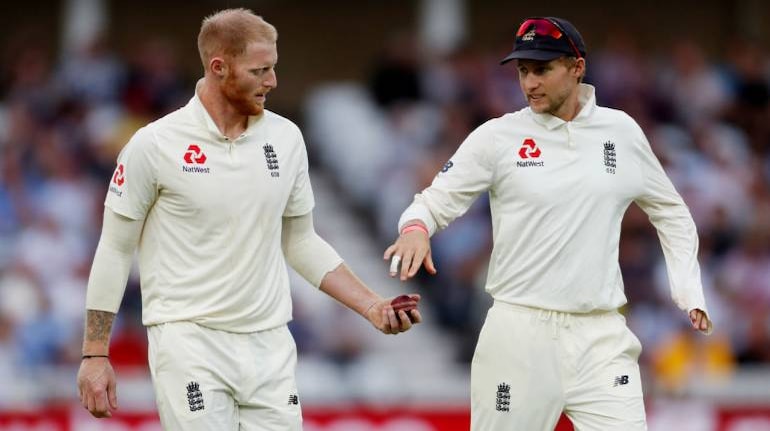



About 40 minutes into the documentary on Amazon Prime, Ben Stokes delivers a line that sums up the man he is: If I’d just let that happen and walked on, I wouldn’t be here. But probably, I’d never forgive myself for walking past something like that.
Stokes is talking about the infamous bar brawl in Bristol that upended his career in 2017. He overheard two men being abused outside of the bar for being gay, and decided to step in. One of the abusers took out a bottle and tried to assault his friend, and then all hell broke loose. A fist fight ensued, which ended up with Stokes’ arrest, and an 11-month ordeal for him and his family, until he was acquitted of affray.
In the meantime, inaccurate stories of him being homophobic were published in the press. He lost his vice-captaincy, and was suspended from the 2017-18 Ashes series. It took a toll on the mental health of Stokes and his family. It was one of the darkest periods of his life.
Yet, he doesn’t have a shred of regret for stepping in to protect two men he didn’t even know. Aptly titled “Phoenix from The Ashes”, the documentary beautifully captures his intensity, his character and his unmistakable ability to fight back from adversity.
At the end of the 100-minute feature, you know why he is exactly the kind of man you turn to in order to win a high-pressure World Cup final. And you also realize he is exactly the kind of man you want leading your side if you are 2-0 down in an Ashes series.
At 142-7 in the first innings of the third Test, with England still trailing by about 100, it seemed like Australia would wrap up the Ashes in the third Test itself. Mitchell Starc was bowling fast, and he looked like he would be cleaning up the tail.
Stokes, at the other end, was bruised and battered, an occasional grimace betrayed the physical pain he was in. But he had that steely resolve in his eyes, akin to the last time he played against Australia at Leeds in 2019. You could tell he was in the mood to change gears, like only he can.
Stokes was batting in his 20s off 60-odd deliveries when Chris Woakes got out. He ended up with 80 off 108 – reducing Australia’s first innings lead to only 26, and keeping the Ashes alive. We have seen him do it for years, and yet it doesn’t cease to stagger.
All sports stars go through ups and downs through their careers. It’s part of the job. They empty themselves on the pitch for the whole world to watch and judge. Then they try again. But Stokes’ fluctuations in his career and in personal life have been dramatic by any standards.
He has struggled with injuries, he braved through his father’s terminal disease, he has suffered panic attacks. Yet, after much pain, despair and rehabilitation, a lot has changed and yet nothing has. Stokes is still England’s point of difference in big moments.
And when the captain steps up, it’s amazing how it runs through the rest of the team. Mark Wood, Woakes and Harry Brook put their hand up and delivered a memorable win to make it 2-1. The England of the past 12 months had finally showed up.
The English team came into the Ashes on a high, having won 10 of the 12 Tests between June 2022 and May 2023. The year before that, they had only won one of the 14 Tests under Root’s captaincy. The tectonic change in England’s approach arrived with their new coach and captain in Brendon McCullum and Ben Stokes. Playing aggressive, exciting cricket from ball one, the new-found approach ensured a clean sweep in Pakistan, a whitewash against New Zealand and a mockery of the Indian bowling attack where they chased down a daunting target of 378 with seven wickets in hand.
The revolution – popularly known as Bazball – had fans and pundits excited ahead of the Ashes. To an extent, it reinvigorated the longest format of the game, producing spectacular cricket regardless of the result.
But the Ashes was the ultimate test of Bazball.
The first two Tests were exciting and entertaining, but England ended up short in both the Tests, leaving them with an uphill battle early in the series. Only Don Bradman’s Australia in 1937 have come back from this position. Expectedly, Bazball and some of Stokes’ decisions came under scrutiny throughout the first two tests.
It, in fact, started from the very first day, when he declared the innings at 393-8 with Joe Root flying at 118 not out. Since Australia chased down 280 with just two wickets in hand, many believed that a bigger first innings total would have made the difference.
I thought the declaration was a gutsy move and you could see where he was coming from. It allowed Stuart Broad to have a crack at David Warner twice – once before the end of the day and then again in the morning session.
More than the declaration, what was baffling was England’s batting in the second innings of the first Test and the first innings of the second Test. That cost them more than anything else.
On both the occasions, they had the chance to grind Australia’s bowlers down. But it seemed like the batters were trying to live up to other people’s expectations of Bazball, forcing shots that weren’t there and prioritizing “entertainment” over an Ashes win – a bit of a tennis equivalent of Nick Kyrgios. Even a pulsating 155 from Stokes in the fourth innings of the second Test wasn’t enough. That’s how far behind they were because of their inexplicable collapse in the first innings.
 England Test skipper Ben Stokes. (File photo by Andrew Boyers/Reuters)
England Test skipper Ben Stokes. (File photo by Andrew Boyers/Reuters)Nasser Hussain rightly pointed out that England had succeeded with Bazball because they had played the conditions until then. But in the first two Tests, they played the hype.
Yes, the Test matches were close, and it could have gone either way, but England lost the first Test with two of Australia’s mainstays managing 45 runs between them. And they lost the second Test even though Australia were a bowler short in Nathon Lyon for the majority of the game. It was perhaps the wake-up call that Bazzball needed in order to continue playing the magnetic cricket with a bit of course correction.
When the third Test began, I desperately hoped for an England win. This is too good a series to be decided so soon. But the scoreline of 2-0 down is bound to bog you down. It reflected in their slip catching and batting in the first innings. You could sense the nerves, the anxiety and the tension.
You need someone to put his hand up and carry the team through tough moments. For England, it had to be Ben Stokes. Around the 30-minute mark in the documentary, Joe Root encapsulates his importance: “When things get hard, you don’t have to turn to Ben. He comes to you,” he says.
And he did.
Under any other English captain of the past, most people would have written the obituary after the first two Tests. And rightly so. This Australian team is better, and high on confidence after winning the World Test Championship. But Stokes eats adversity for breakfast. He has the magical ability to force fans to hope against hope. He has a reassuring influence. He makes things happen. He relishes the big stage. And as far as an English captain is concerned, it doesn’t get much bigger than the Ashes. Over to Manchester.
Discover the latest Business News, Sensex, and Nifty updates. Obtain Personal Finance insights, tax queries, and expert opinions on Moneycontrol or download the Moneycontrol App to stay updated!
Find the best of Al News in one place, specially curated for you every weekend.
Stay on top of the latest tech trends and biggest startup news.